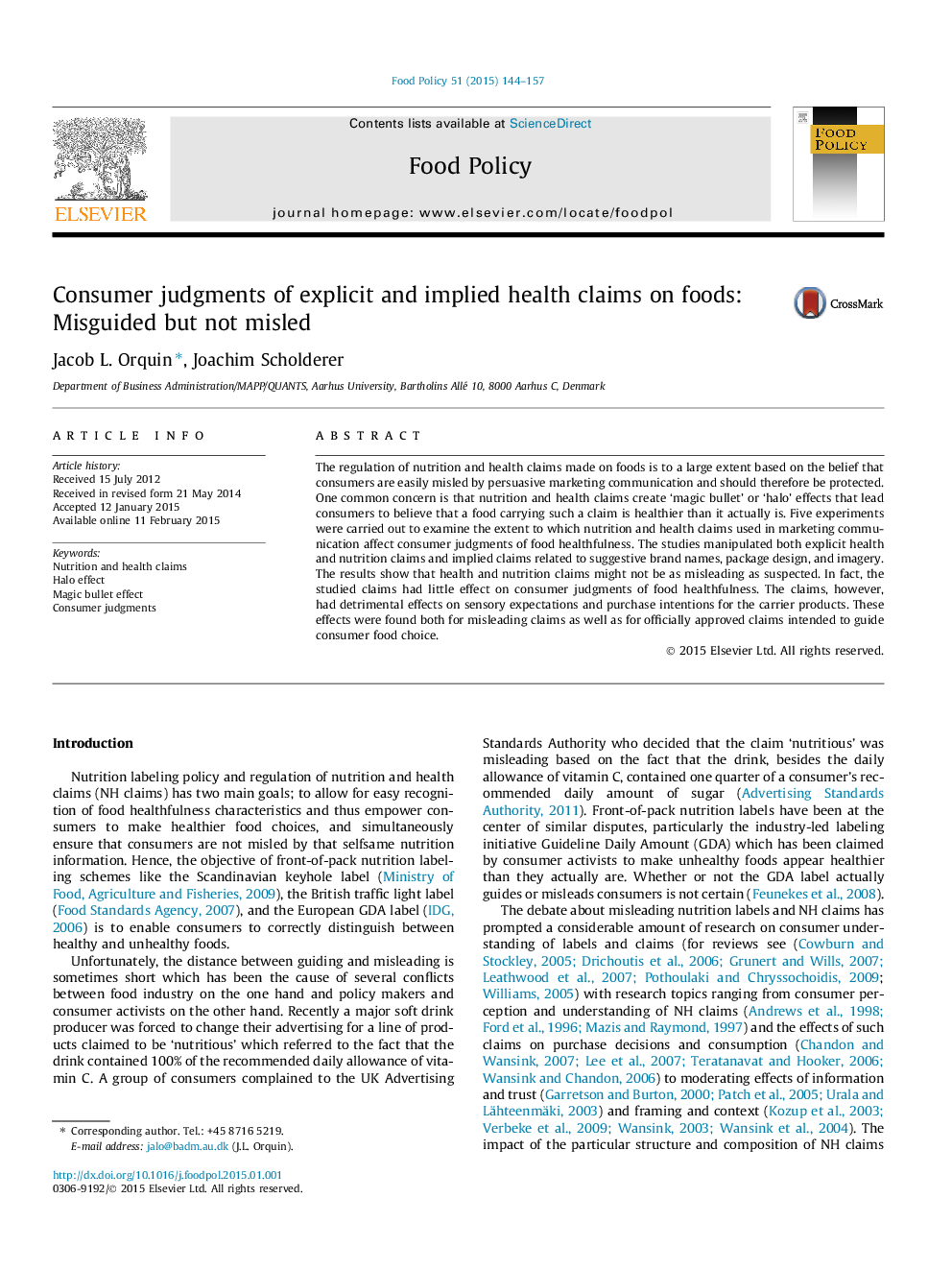| Article ID | Journal | Published Year | Pages | File Type |
|---|---|---|---|---|
| 5070354 | Food Policy | 2015 | 14 Pages |
Abstract
The regulation of nutrition and health claims made on foods is to a large extent based on the belief that consumers are easily misled by persuasive marketing communication and should therefore be protected. One common concern is that nutrition and health claims create 'magic bullet' or 'halo' effects that lead consumers to believe that a food carrying such a claim is healthier than it actually is. Five experiments were carried out to examine the extent to which nutrition and health claims used in marketing communication affect consumer judgments of food healthfulness. The studies manipulated both explicit health and nutrition claims and implied claims related to suggestive brand names, package design, and imagery. The results show that health and nutrition claims might not be as misleading as suspected. In fact, the studied claims had little effect on consumer judgments of food healthfulness. The claims, however, had detrimental effects on sensory expectations and purchase intentions for the carrier products. These effects were found both for misleading claims as well as for officially approved claims intended to guide consumer food choice.
Related Topics
Life Sciences
Agricultural and Biological Sciences
Food Science
Authors
Jacob L. Orquin, Joachim Scholderer,
